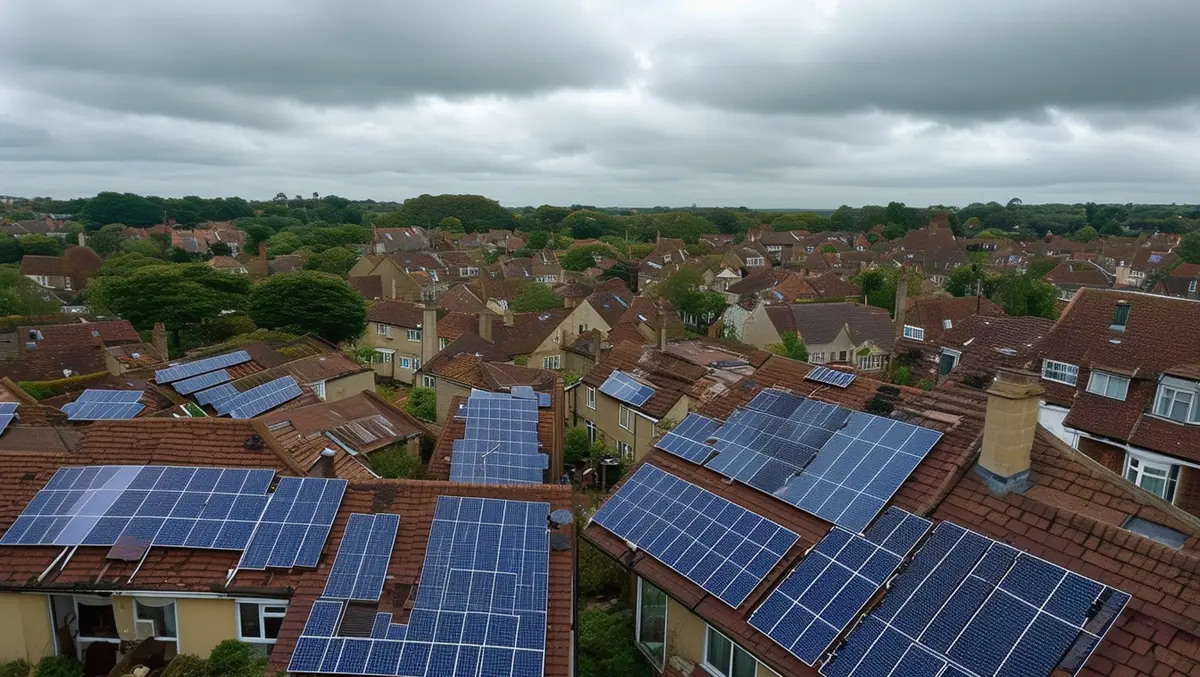
Solar panel installations in England drop by 25% in early 2024
The number of solar panels installed in homes across England in the first six months of 2024 has seen a significant drop, according to analysis by the sustainable energy experts at Solar Together. During this period, nearly 63,000 solar panels were installed, a 25% decrease from the 83,000 installations recorded in the same timeframe last year.
Despite the downward trend in the first half of the year, Solar Together predicts a rebound in solar panel uptake for the remainder of 2024. The organisation attributes this optimism to economic improvements and a stabilised political environment, bolstered by recent policy announcements from the new government. In its initial phase, the new administration has signalled plans to encourage solar rooftop installations and simplify the process for both new and existing homes.
George Frost, UK Country Manager at iChoosr, which manages the Solar Together group-buying initiatives, expressed confidence in the prospects for 2024. "While 2024 has so far seen a small drop in the number of households across England installing solar panels, we expect to see a sharp rise in activity across the rest of the year. With the cost-of-living crisis subsiding, economic growth prospects improving, and the incoming government putting a green energy revolution at the heart of its plans, the ingredients are there for a real uptick in solar panel installations across the rest of the year and beyond."
Frost also noted the favourable economic conditions and political stability that could drive increased adoption of solar energy. "With energy prices now more stable – and inflation having fallen significantly from where it was just 18 months ago – coinciding with improved political stability brought about by the election, the number of households installing solar panels is likely to rise in the coming months. The new government has not only brought in new measures to support the renewable energy industry as a whole, but also changed the overall mood regarding solar power – and this optimism is likely to bring about a greater urgency amongst both businesses and households to make the switch."
Solar Together, a group-buying initiative, aids households in purchasing solar panels and battery storage systems at competitive prices. In 2023, the initiative was responsible for 10% of MCS-certified solar panel installations across England. One of the primary objectives of such initiatives is to reduce the perceived barrier of high initial costs, making renewable energy more accessible to the general public.
Regionally, Maldon in Essex recorded the highest proportion of solar panel installations, with over 1% of households installing panels in the first half of 2024. Through its collaborative scheme with Essex County Council, Solar Together has assisted nearly 2,500 households in the county to install solar panels, including almost 300 this year. Other regions demonstrating high adoption rates include The Forest of Dean in Gloucestershire, The Isles of Scilly off Cornwall, Boston in Lincolnshire, and Westmorland and Furness in Cumbria, each with nearly 1% of households adopting solar technology.
Winchester recorded the highest proportion of residents installing solar panels within city limits this year. This is consistent with a previous Solar Together study indicating Winchester as the English city with the highest proportion of 'green energy champions'—households that have adopted renewable energy sources or electric vehicles.
The analysis also revealed that 35% of energy-conscious consumers in the UK are likely to switch to renewable energy within the next five years. However, 90% of respondents believe there should be greater government incentives to encourage investing in renewable energy sources at home.
Solar Together has worked with UK councils since 2015 to promote the transition to renewable energy. To date, the initiative has facilitated over 33,991 solar panel installations, which are projected to offset more than 690,000 tonnes of carbon emissions over the next 25 years.


